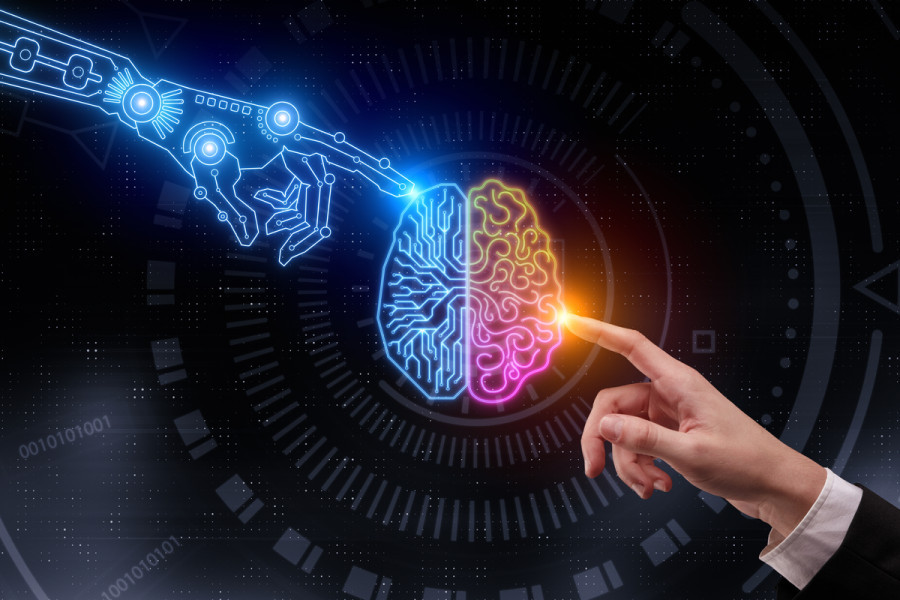Science & Technology
Experts warn of growing AI risks for ‘Generation Beta’
Having AI in daily life has opportunities and challenges, particularly in cybersecurity and digital education.
Aarati Ray
Imagine a world where a seven-year-old can effortlessly use generative AI to solve math problems, create digital art, and even recommend video games.
This is the scenario awaiting Generation Beta (born from 2025 onward to 2039), the first cohort that will be born entirely into a world dominated by artificial intelligence and virtual reality. Unlike Millennials or Gen Z, who learned to adapt to AI as it emerged, Generation Beta will not know a world without it.
“While Generation Alpha has experienced the rise of smart technology and artificial intelligence, Generation Beta will live in an era where AI and automation are fully embedded in everyday life—from education and workplaces to healthcare and entertainment,” researcher Mark McCrindle writes in a blog post. McCrindle projects that this generation will encompass 2.1 billion individuals by 2035.
The integration of AI into daily life presents both opportunities and challenges for Generation Beta, particularly in areas like cybersecurity and digital education safety, which are still underdeveloped in Nepal.
Again, it’s not far-fetched to imagine a six or seven-year-old from this generation mastering generative AI—something that is already happening today.
Ashok Khadka, a 21-year-old from Chabahil, Kathmandu, shared how his seven-year-old nephew, a grade two student at Clinton School, frequently uses ChatGPT for homework and other tasks.
Two months ago, Khadka taught him to ask ChatGPT questions for help when he wasn’t around. “Since then, he’s been using ChatGPT for homework, math problems, and even to request images of planets, the sun, and flowers,” Khadka said.
Recently, his nephew asked ChatGPT for ‘the best video games’, receiving suggestions such as Grand Theft Auto, Mortal Kombat, and Call of Duty.
“These games aren’t suitable for children, so I recommended other options,” Khadka said. “This incident made me realise how skilled kids are becoming with AI and how critical it is for adults to guide them.”
AI has become increasingly unavoidable. Even simple Google searches now include AI-generated summaries, altering the way we access information.
“The answer of whether Generation Beta will be empowered by AI’s potential or harmed by its risks depends on how we prepare them today for tomorrow’s challenges,” said Anil Raghuvanshi, founder and president of ChildSafeNet, a Lalitpur-based organisation working to protect children and young people online.
According to a 2024 ChildSafeNet-UNICEF study titled ‘Safeguarding futures: Exploring the impacts of generative AI on child online protection in Nepal’, 68 percent of survey respondents in Nepal were aware of generative AI, and 46 percent actively used it. Among users, 52 percent preferred ChatGPT, leveraging it for educational purposes (38 percent) and entertainment.
The report also highlighted various risks associated with the widespread use of generative AI concerning children’s safety and well-being.
Key concerns include potential negative effects on creativity and critical thinking, exposure to CSAM (Child Sexual Abuse Material), access to inappropriate content, privacy violations, cyberbullying, and biased content.
Around 58 percent of respondents identified the negative impact on children’s creativity and critical thinking as a major risk of generative AI.
“Information has become synonymous with knowledge and wisdom, which is not ideal,” Raghubansi said. “The reliance on instant answers will harm critical thinking and creativity.”
The risks extend beyond creativity.
A 2023 report by the Internet Watch Foundation revealed the proliferation of AI-generated child sexual abuse material (CSAM). Over 20,000 such images were discovered on a single dark web forum in a month, highlighting the urgent need for regulation and enforcement.
Nepal even briefly ranked second globally in Google searches for ChatGPT in 2023. Despite its high interest in AI, the country remains unprepared for the challenges AI brings.
Existing laws, such as the ‘Electronic Transactions Act of 2008’, focus on data protection and privacy but lack specific provisions to regulate AI. Similarly, the Digital Nepal Framework of 2019 outlines digital initiatives but omits AI’s role.
“Nepal’s education system is woefully unprepared for the digital age,” said Dr Lina Gurung, assistant professor at Kathmandu University’s School of Education. “Teachers lack training, and policies fail to address AI’s implications for children. Without proper frameworks, the risks far outweigh the benefits.”
The rise in cybercrimes is another concern. The bureau reported 635 cases of cyber violence in fiscal year 2023-24, a 260.8 percent increase from 176 cases the previous year.
“Cybercrime cases have surged in recent years,” Gurung said. “If an 11-year-old is vulnerable to cybercrime today, in the future, even children as young as eight or nine may be prone to it.”
The integration of AI into daily life is inevitable, but ensuring it empowers rather than ensnares Generation Beta requires immediate action.
Raghubansi stressed the need for digital safety training, AI regulation, and equipping educators with the tools to guide students responsibly. “It’s high time we prepare for both the good and evil of AI,” he said.
Many countries are revising their policies and implementing necessary changes; for example, the United Arab Emirates even has a Ministry of Artificial Intelligence, Digital Economy and Remote Work Applications.
However, Nepal has only just begun to explore the implications of AI. “We need to catch up,” Raghubansi said.
Proposed reforms, such as incorporating internet safety into school curriculums, are steps in the right direction. However, Dr Gurung cautioned against superficial interventions.
“If these lessons are merely tied to exams, they’ll lose their practical value,” she said. “Comprehensive training and real-world applications are essential.”
Issuing a press release on August 18 last year, Nepal’s Cyber Bureau cautioned the public about the rising misuse of digital platforms, including the use of artificial intelligence (AI) to generate and disseminate misleading or harmful content.
However, according to Spokesperson of the Cyber Bureau Superintendent of Police Deepak Raj Awasthi, the current IT department is understaffed to handle the increasing challenges.
They lack skilled personnel and advanced investigative tools to address the growing use of AI, cryptocurrency, and deepfake technology in cybercrime cases.
As Generation Beta grows up, AI will redefine creativity, knowledge, and relationships. Moreover, it is also certain to add to cybercrime cases.
“We must be ready to tackle it,” Gurung said.




 10.12°C Kathmandu
10.12°C Kathmandu










